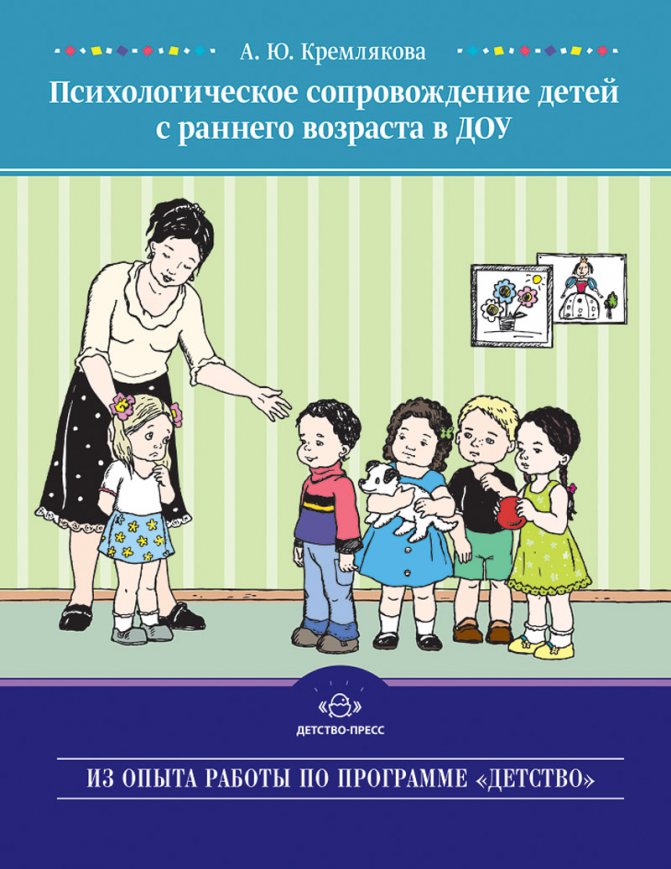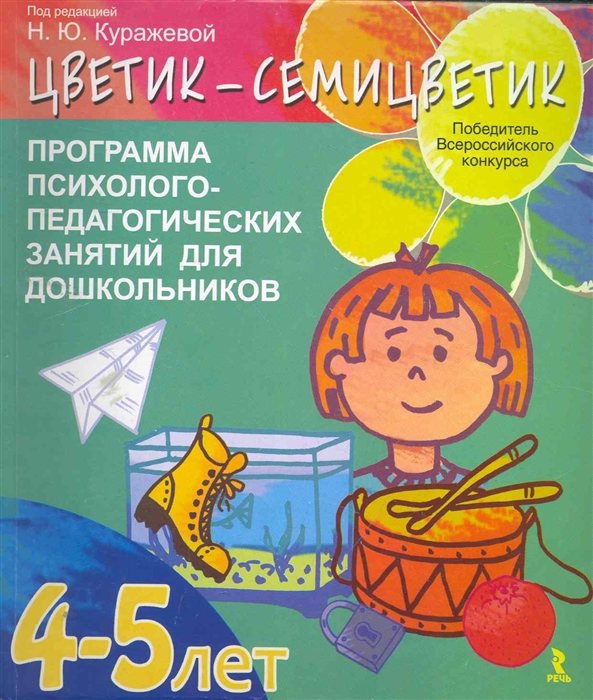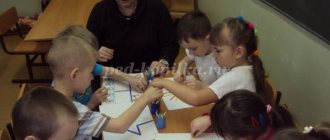Good luck!
« Previous entry Diagnostic albums on psychological support for the implementation of the Federal State Educational Standard in primary schools.
Next entry » On the use of working time of a teacher-psychologist in an educational institution.
What else to read?
Scenario for meeting with parents “How to communicate with a teenager?”
The program “The path to yourself is the path to success.”
Teacher-psychologist in kindergarten
A teacher-psychologist in a kindergarten is, first of all, a knowledgeable person who deeply understands the child.
The main goal of the work of a teacher-psychologist is to make the life of a child in kindergarten convenient and comfortable, primarily from the point of view of the child’s psyche and the individual characteristics of its development.
A teacher-psychologist works in a preschool institution in the following areas:
The first is consultation.
Consultations “on request” - any problems that concern the child’s loved ones. An educational psychologist will help the child’s parents find and explain the hidden reasons for some children’s failures, actions and behavioral characteristics. An educational psychologist will tell parents how to communicate with their children so that behavior changes in the desired direction are reinforced.
The second direction is diagnostics
Routine diagnostics by age are carried out in order to determine the level of development of higher mental functions and the emotional state of the child - in order to help him if there are any problems. The child’s psyche is plastic, so one develops faster, the other slower. To help children, a psychologist conducts play-based correctional and developmental classes.
In addition to the planned diagnostics discussed above, “situational” studies are also carried out. For example, a child developed fears. An educational psychologist can use special tests to identify the cause. A separate type of diagnosis carried out by an educational psychologist is a comprehensive assessment of a child’s readiness for school. Parents must delve into its results in every detail. First of all, to help your child. If he is not quite ready for school, the psychologist will tell you what exactly you need to pay attention to
The third direction is correctional and developmental work
He is doing corrective work. Children, as you know, are all different. One child develops faster, the other slower. Mental processes are also formed spasmodically. And sometimes it happens that the development of some mental function needs to be pushed a little in order for normal learning or behavior to improve. For this purpose, the psychologist plans and conducts correctional classes with the child, during which programs drawn up by specialists are used and include the following forms of work:
-individual correctional classes;
— group correctional and developmental classes.
The fourth direction is psychological education and psychological prevention
Psychological education of parents is preventive, i.e. warning character. The main means of preventing relationships in the development of children is the awareness of parents and the improvement of their psychological and pedagogical culture. For this purpose, a preschool psychologist conducts thematic conversations and group consultations with parents. The psychologist also takes care of creating a psychologically favorable climate in the preschool educational institution. Particular attention is paid to the style of interaction between adults and children.
Thus, in kindergarten, a teacher-psychologist is present primarily to ensure that all parties “respect the interests of the child.” His work, as a rule, is not obvious to the parent, but the baby, believe me, needs it.
What are the most common mistakes when contacting a teacher-psychologist in an educational institution?
An educational psychologist in an educational institution primarily deals with problems related to learning: memory, attention. The study of personality and character is carried out only in the light of the influence of these characteristics of the child on the process of learning and communication with peers and teachers.
Parents often cannot clearly formulate the problem. A psychologist is not a friend with whom you can talk for a long time about your real and suspicious fears. We go to the doctor with a very specific problem: a sore throat, a high temperature. And the psychologist is waiting for a clear formulation: he cannot learn a poem, is inattentive, lazy, whiny.
When you come for an individual consultation with an educational psychologist, asking your question, tell us in detail about the child (toxicosis during pregnancy, birth trauma, closedness/openness, favorite toys, friends, etc.) and about the family (full-fledged, part-time, grandmothers). grandfathers, brothers-sisters, prosperous-disadvantaged, and so on). The more information there is, the more real the help will be.
It can be very difficult to work with parents who want too much from their child. A child cannot always repeat their path, their abilities, that the child does not have any mental disorders, he is just different!
Parents whose children undergo psychological testing often worry that the results will become known to other parents. One of the ethical professional standards of psychologists, one of their commandments is confidentiality. No names. All information on the results of psychological testing of the child is transmitted to parents in printed form or orally during an individual conversation.
Psychologist in kindergarten
The main function of a psychologist in a kindergarten is to support the mental development of children, monitor children with developmental problems and provide timely early assistance to children and parents.
Practice shows that parents’ lack of understanding of the role of a psychologist in kindergarten leads to avoidance and refusal to meet with him.
I would like to immediately clarify the situation:
a psychologist and a psychiatrist (with whom we are often compared) have significant differences in the type of activity.
A psychiatrist is a doctor who deals with deviations (disorders) in the human mental sphere. He can make a diagnosis, prescribe, if necessary, drug treatment, and give a referral to a specialized kindergarten.
Psychologist (children) is a teacher who works with children who do not have mental disabilities. He does not make a diagnosis, but can make a conditionally variable prognosis for the future. If necessary, he may suggest consultation with other specialists: psychiatrist, neurologist, speech therapist.
The main method of work of a psychologist is to monitor the development of a child at all age stages, tracking the dynamics of development of the child’s cognitive, emotional-volitional, and personal spheres. If necessary, the psychologist conducts individual or subgroup sessions with children with a developmental focus. All classes are conducted in a playful manner; fairy tales, outdoor games, psycho-gymnastic sketches, and elements of art therapy (creative activities) are often used in the work. Children are usually very willing to attend such classes.
Unfortunately, solving children’s psychological problems only in a kindergarten, in classes with a psychologist, is not enough.
Without interaction with the child’s parents, such work will be superficial, and the positive dynamics that appear in the child’s development will very soon fade away. Therefore, first of all, the desire of parents to interact with a psychologist, to help the child overcome problematic issues, is the most important factor on the path of change for the better.
Only joint fruitful work will give a successful result.
As you know, it is better not to wait for a problem, but to do everything to avoid it. Therefore, it is better to start interacting with a psychologist from a very early age.
Starting from toddler age, each child comes under the close attention of a teacher-psychologist, who accompanies the process of adaptation of the child to kindergarten. While in a group, a psychologist identifies children with complex adaptation, observes the characteristics of their neuropsychic development, supports them in every possible way, conducts developmental and psychoprophylactic classes with a group of children, usually in the form of outdoor games and finger gymnastics.
I recommend that parents registering their child for kindergarten undergo an individual consultation with an educational psychologist in order to obtain the most complete information about the child’s characteristics.
Conversation, observation, questioning are methods that will help a psychologist during a consultation to better understand and predict the development options of a child, and select optimal conditions for revealing his intellectual and personal characteristics. It will be useful for parents to learn to look at their child from the outside and choose the optimal strategy for raising him, based on unconditional love and trust.
Psychologist classes with children 2-4 years old during the period of adaptation to kindergarten
Author: A. Ronzhina
The very title of the book speaks of its content. It provides detailed notes on the lessons of a teacher-psychologist with children. It also presents a methodology for monitoring children during the adaptation period.
Anna Ronzhina: Psychologist's classes with children 2-4 years old during the period of adaptation to a preschool institution The manual presents a series of classes that will help children 2-4 years old successfully adapt to the conditions of a preschool institution. More details
5
Psychological support for children from an early age in preschool educational institutions
Author: Kremlyakova A.Yu.
I discovered this manual relatively recently. It differs from the adaptation books I presented above. If in previous books the games can be repeated, then here the activities are completely different. There are also developed seminars and instructions for parents and educators.

Kremlyakova A.Yu. “Psychological support for children from an early age in preschool educational institutions” The program presents a system of work with pupils, their parents and preschool educational institutions specialists, aimed at the successful adaptation of children to kindergarten. More details
Psychologist job description
General provisions:
A school psychologist belongs to the category of specialists. The position of a teacher-psychologist must be held by a person who has a secondary psychological education or secondary education with an additional specialty “Psychology”___): 2-4 years, 4-6 years, more than 6 years) or a higher psychological education with an additional specialty “Psychology”___: 2 -4 years, 4-6 years, 6-10 years, more than 10 years) or ___ qualification category.
The appointment and dismissal of a school psychologist is carried out by order of the director of the institution on the recommendation
The school psychologist should know:
- Constitution of the Russian Federation.
- Laws of the Russian Federation, decrees and decisions of the Government of the Russian Federation and federal educational authorities.
- Declaration of Human Rights and Freedoms.
- Convention on the Rights of the Child.
- Legislative documents regulating issues of labor protection, career guidance, employment of students and their social protection.
- General psychology, educational psychology and general pedagogy, personality psychology and differential psychology, child psychology and developmental psychology, social psychology, medical psychology, child neuropsychology, pathopsychology, psychosomatics.
- Fundamentals of defectology, psychotherapy, sexology, mental hygiene, professional counseling, professional psychology, psychodiagnostics, psychological counseling and psychoprophylaxis.
- Methods of active learning, socio-psychological preparation of communication.
- Modern methods of individual and group professional counseling, diagnosis and correction of normal and abnormal child development.
- Labor protection, safety and fire safety rules and regulations.
- The school psychologist reports directly.
During the absence of a school psychologist, his duties are performed by a person appointed by order of the director of the institution. The specified person acquires the corresponding rights and is responsible for the proper and timely fulfillment of the duties assigned to him.
Job responsibilities of a teacher-psychologist:
Carries out professional activities aimed at maintaining the psychological, somatic and social well-being of students during the learning process in institutions.
Promotes the protection of the rights of individuals in accordance with the Convention on the Rights of the Child.
Promotes the harmonization of the social environment of the institution and carries out preventive measures to prevent the occurrence of social aberrations.
Identifies factors that impede the personal development of students and takes measures to provide various types of psychological assistance.
Provides assistance to students, parents and teaching staff in solving specific problems.
Performs psychological diagnostics with various profiles and purposes.
Makes psychological and pedagogical conclusions based on the materials of scientific research works in order to orient the teaching staff, as well as parents, to the problems of personal and social development of students.
Keeps documentation in the prescribed form and uses it for its intended purpose.
Participates in the planning and development of programs for the development and support of educational activities, taking into account the individual, gender and age characteristics of students, contributes to the development of their readiness to navigate various life situations and professional self-determination.
Provides psychological support to creatively gifted students, promotes their development and research.
Determines the degree of deviations in the development of students, as well as various types of social development disorders and carries out their psychological and pedagogical correction.
Formation of the psychological culture of students, teaching staff and parents, including the culture of sex education.
Consults employees of educational institutions on the development of the institution, the practical application of psychology aimed at increasing the socio-psychological competence of students, teachers, and parents.
The school psychologist has the right:
Familiarize yourself with the draft decisions of the institution’s management in connection with its activities.
Make proposals to the management of the institution to improve its activities in matters within its competence.
In accordance with the salary scale agreed with the Ministry of Labor of Russia and the qualification characteristics of the position of a teacher-psychologist and approved by order of the Ministry of Education of Russia and the State Committee for Higher Education of Russia dated December 14, 1995 No. 622/1646, the salary of a teacher-psychologist is set in the range of grades 7-14 of the Unified Scale wages. Grades 7-12 are paid in accordance with the training and experience of teaching in their field, and grades 12-14 - in accordance with the qualification category achieved based on the results of the qualification assessment. psychological training diagnostic correction
According to Letter No. 10/32-T of the Ministry of Education of Russia dated January 12, 1993, the salaries of school psychologists for working in special educational institutions for children with developmental disabilities increase by 15-20%, like other teachers. In addition, psychologists working in orphanages, special preschool educational institutions and psychological, medical and pedagogical consultations have another advantage: they receive 56 calendar days of vacation, and psychologists working in general education preschool institutions receive 42 calendar days.
Since the educational psychologist is subordinate to both the head of the preschool institution and the head of the scientific and methodological office, when hiring him, on the one hand, the days of his absence from the preschool institution must be agreed upon in advance, on the other hand, the days of his participation in scientific meetings. methodological association of psychologists. Work reporting forms for the educational psychologist have also been prepared for both managers—professional and administrative.
To regulate these relationships, the school psychologist, before hiring, enters into an agreement with the director of the preschool institution.
"Seven-flowered flower." Program for the intellectual, emotional and volitional development of children"
Author: Kurazheva N.Yu.
This program is an indispensable assistant in conducting correctional and developmental activities with children from 3 to 7 years old. It provides detailed lesson notes and also includes a workbook. On its basis, an educational psychologist can create his own work programs.

Kurazheva N.Yu. "Seven-flowered flower." Program for the intellectual, emotional and volitional development of children 3-4 years old"

Kurazheva N.Yu. "Seven-flowered flower." Program for the intellectual, emotional and volitional development of children 4-5 years old"
Kurazheva N.Yu. "Seven-flowered flower." Program for the intellectual, emotional and volitional development of children 5-6 years old"
Kurazheva N.Yu. "Seven-flowered flower." Program for the intellectual, emotional and volitional development of children 6-7 years old"
3







